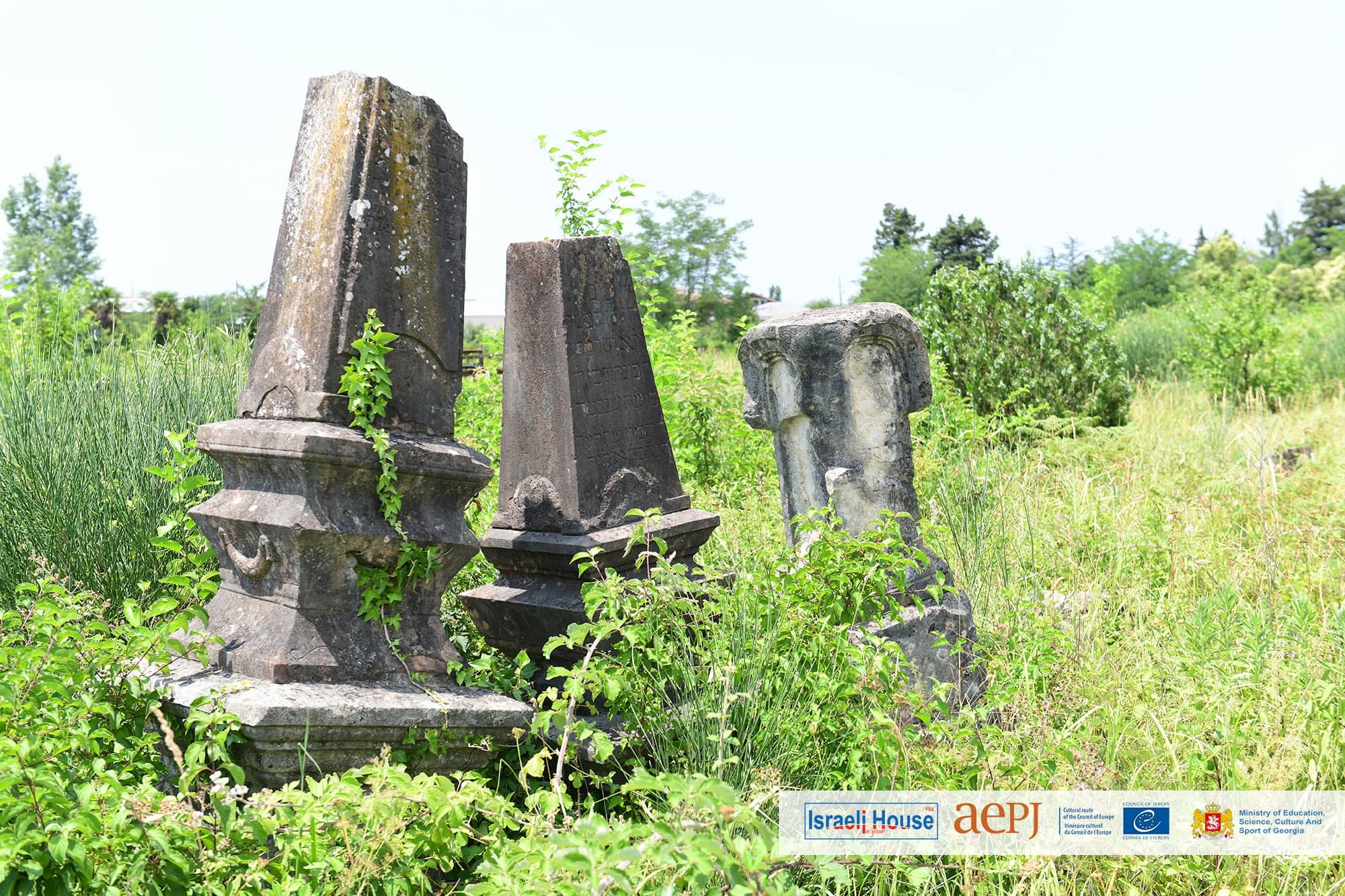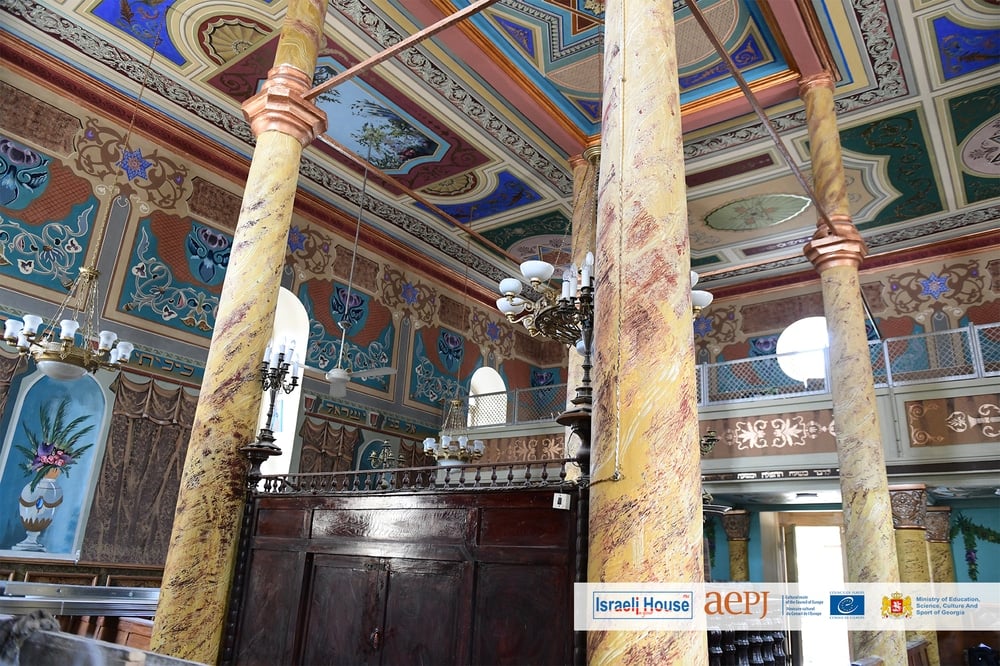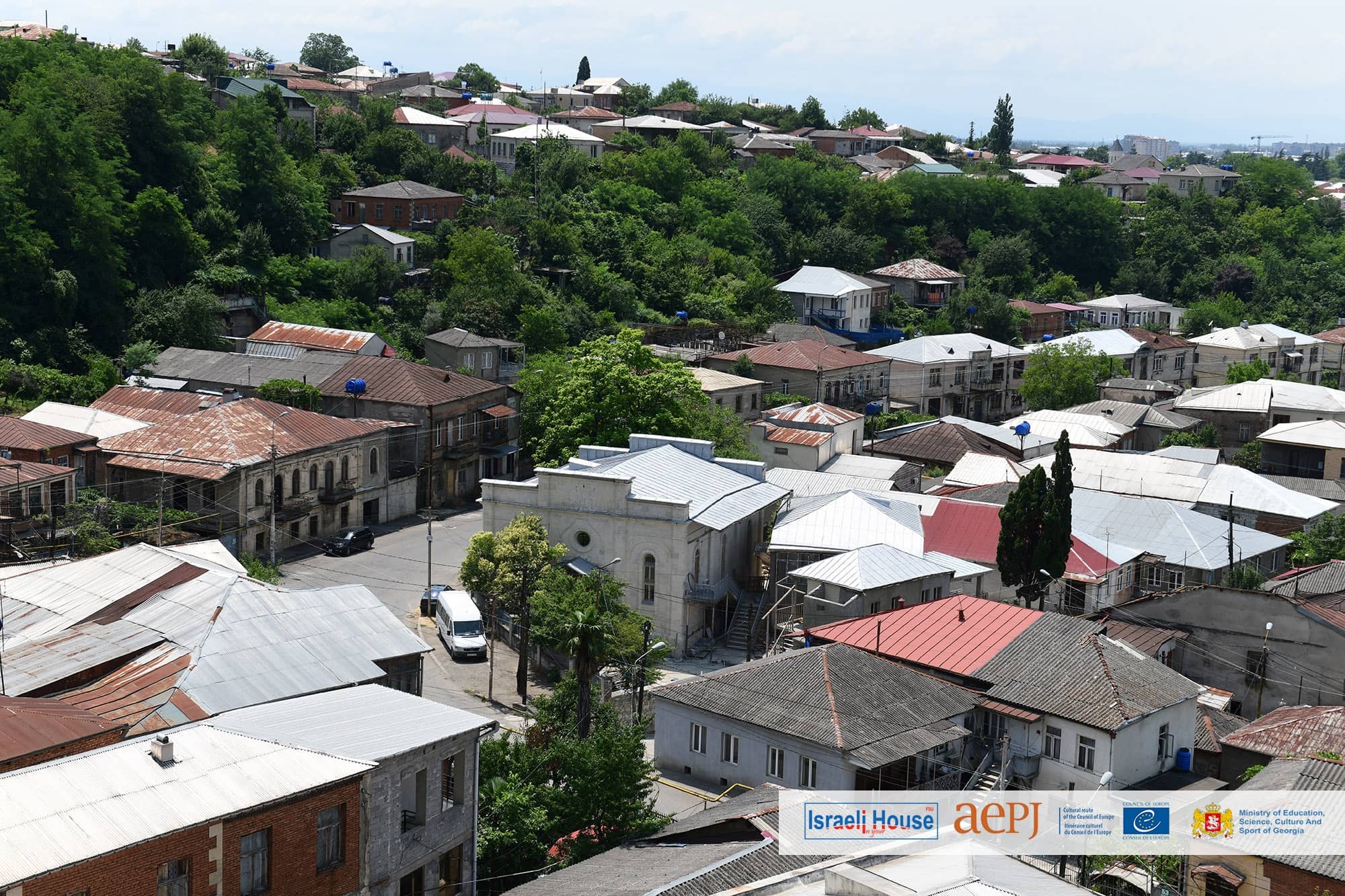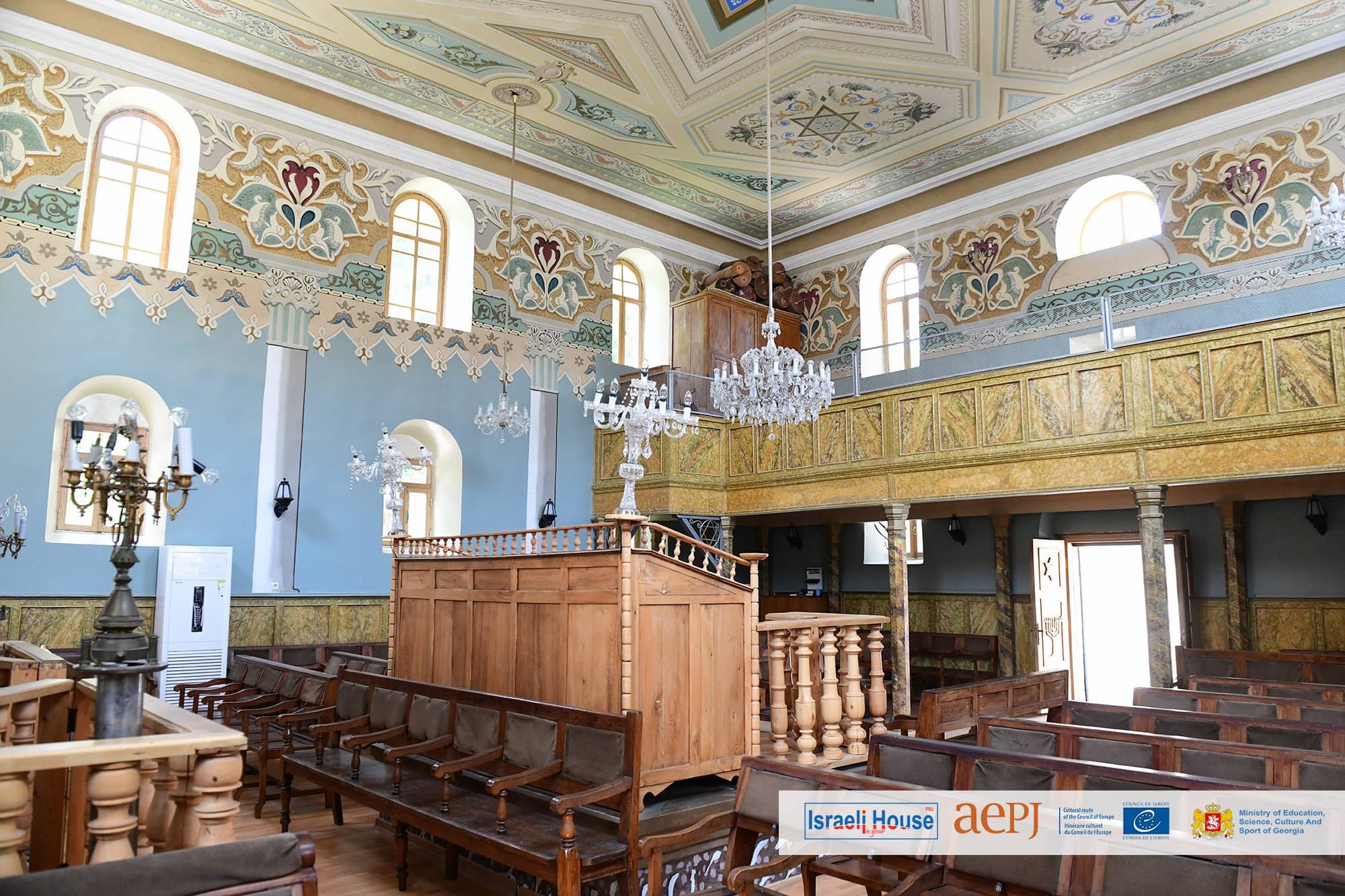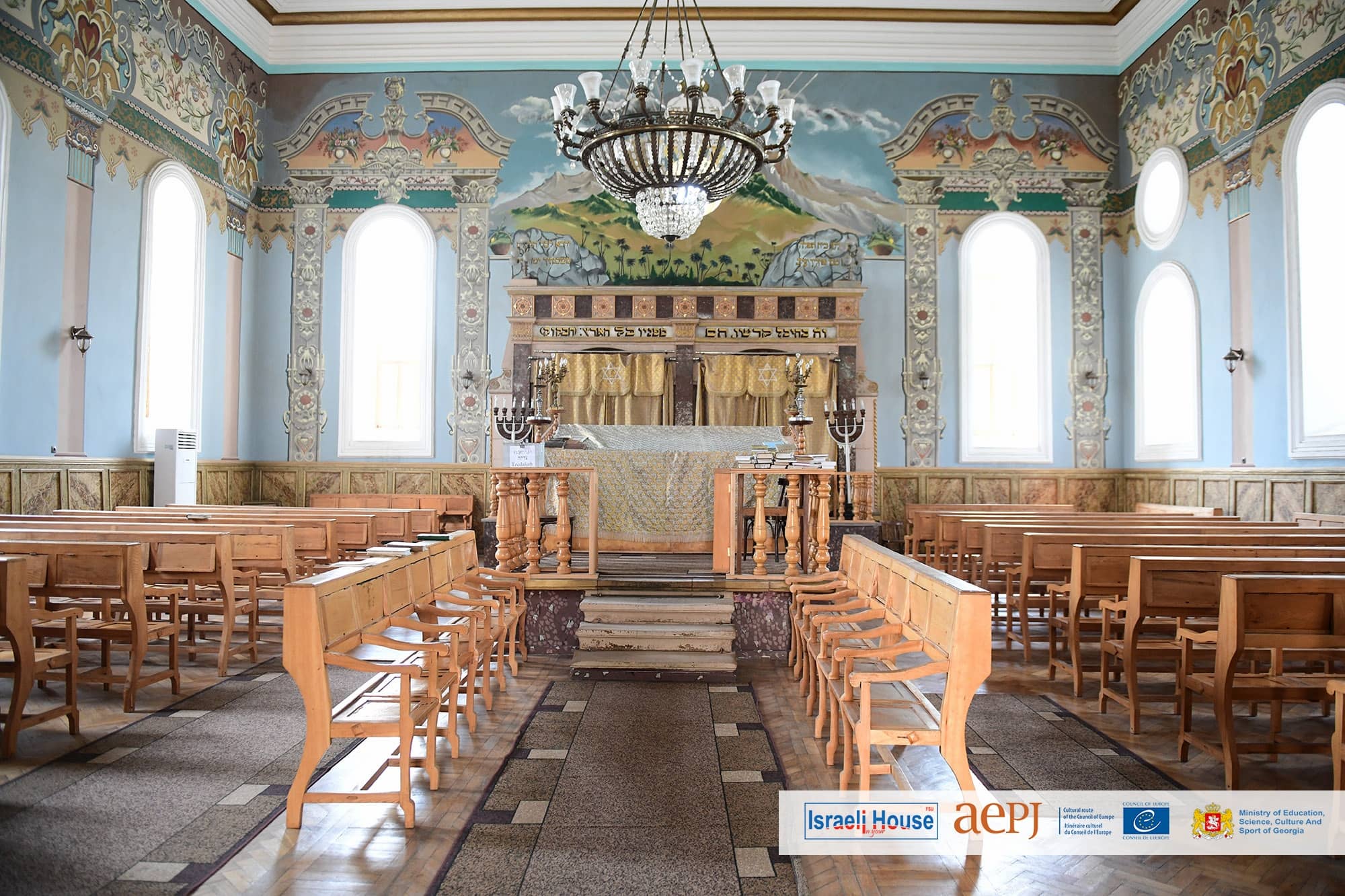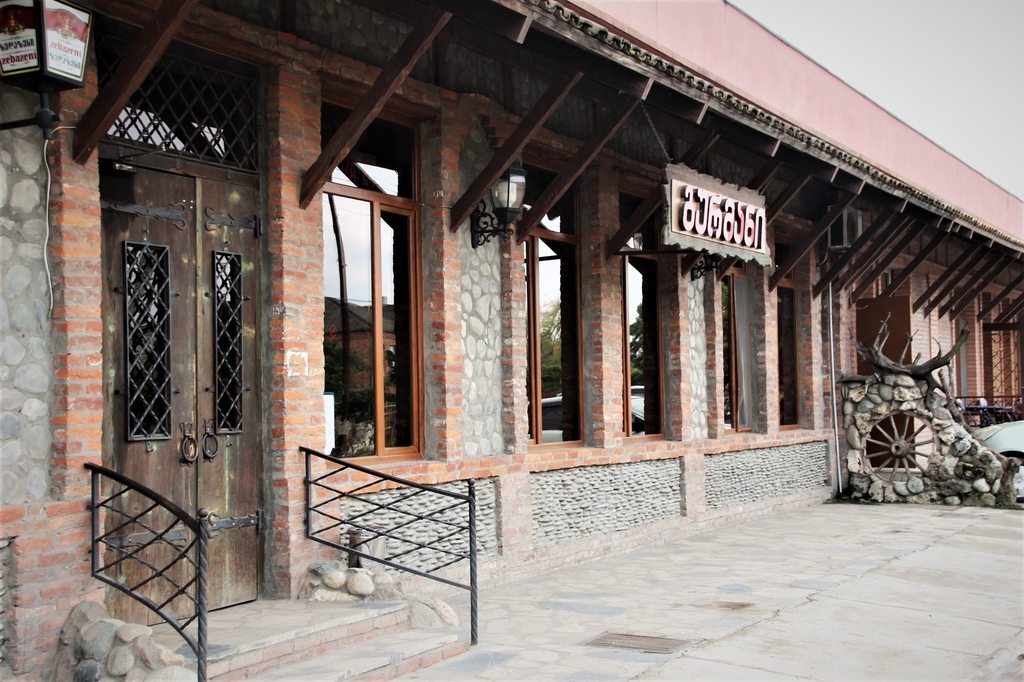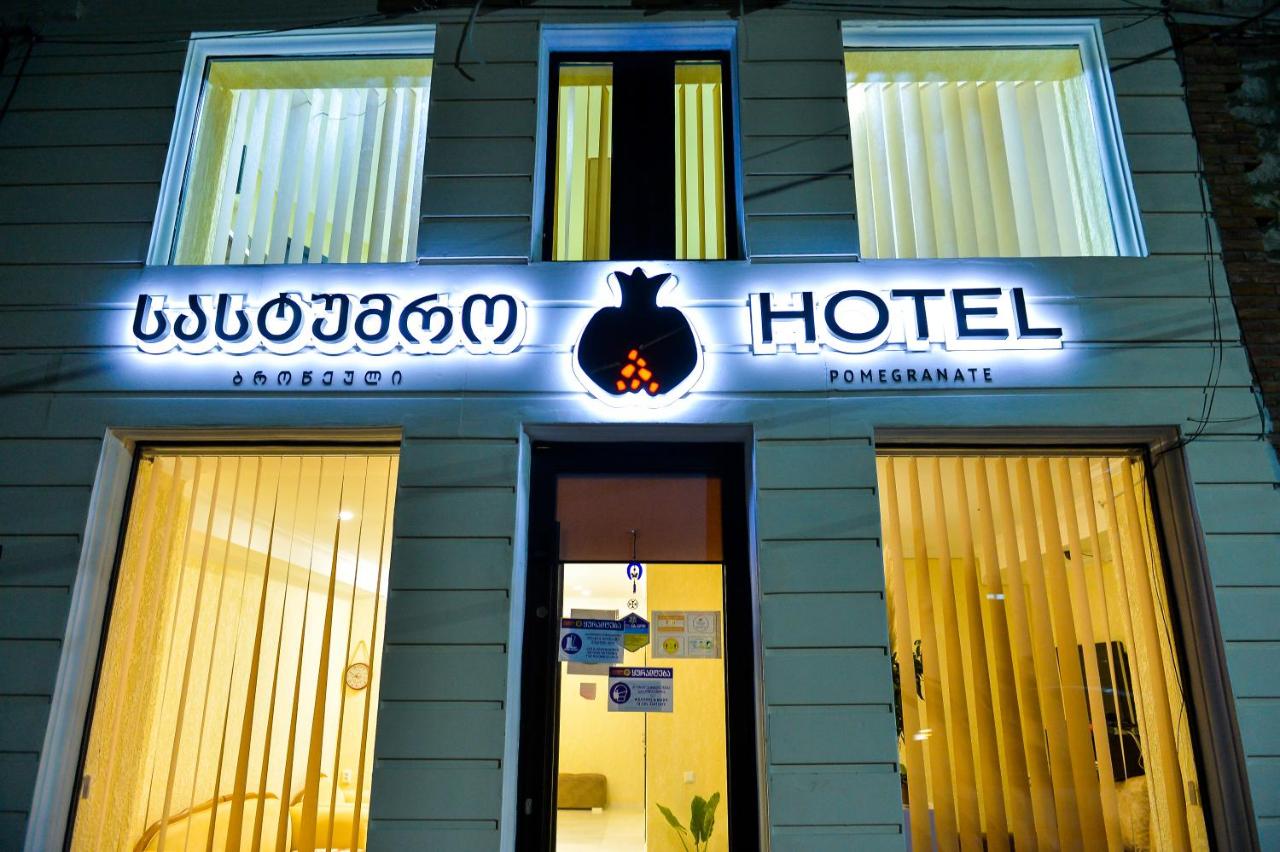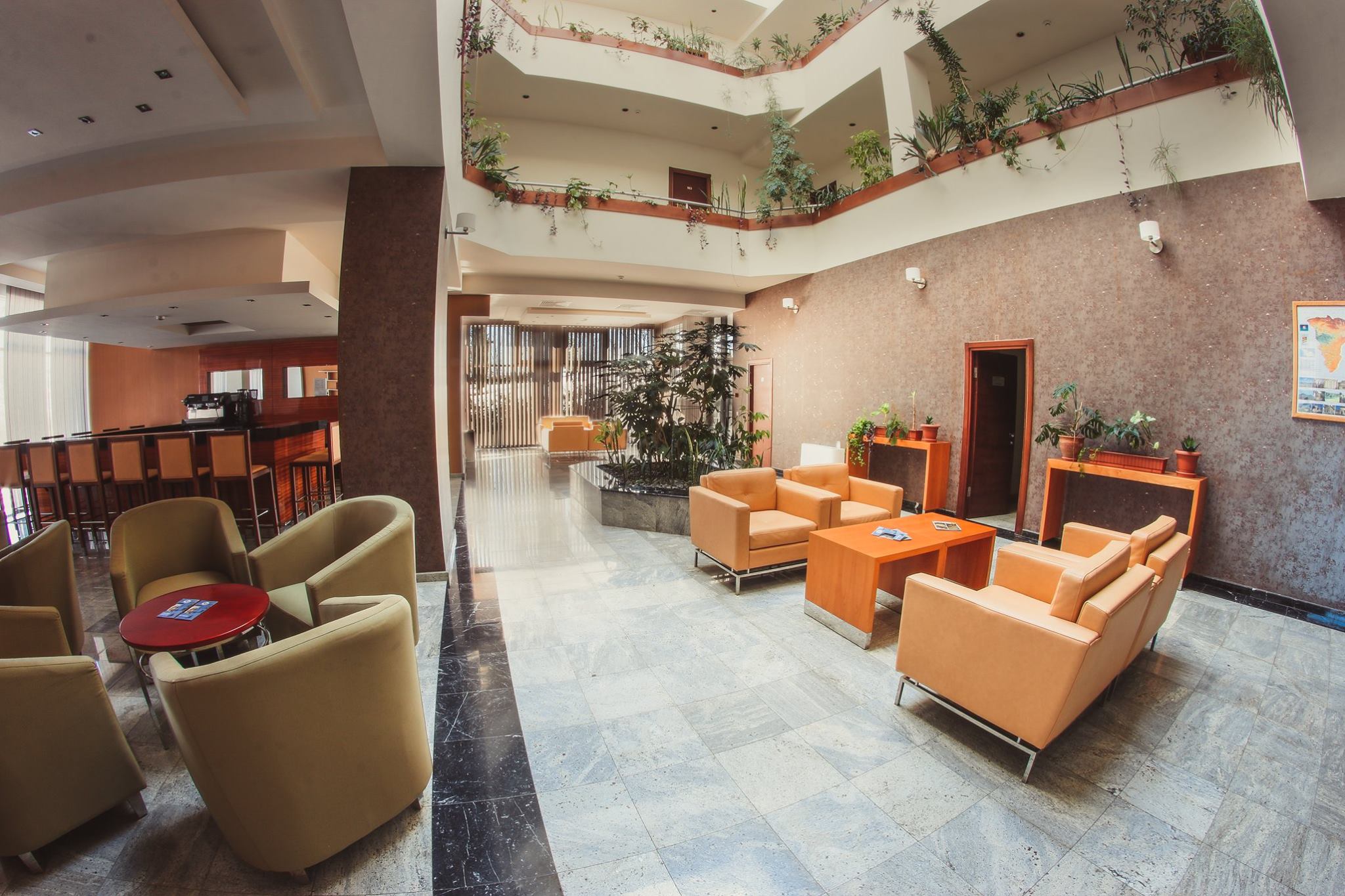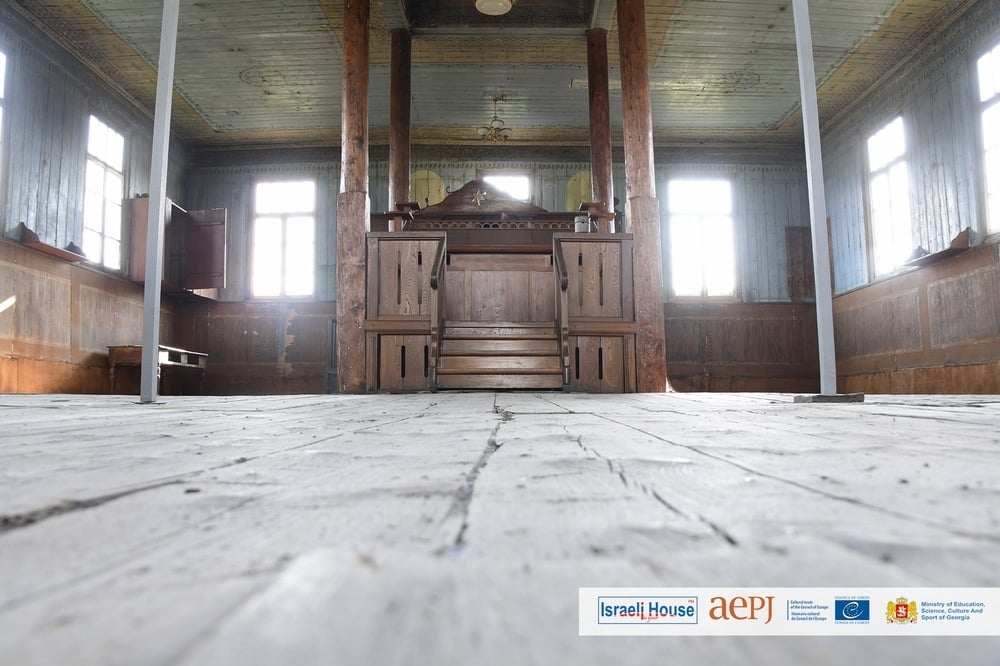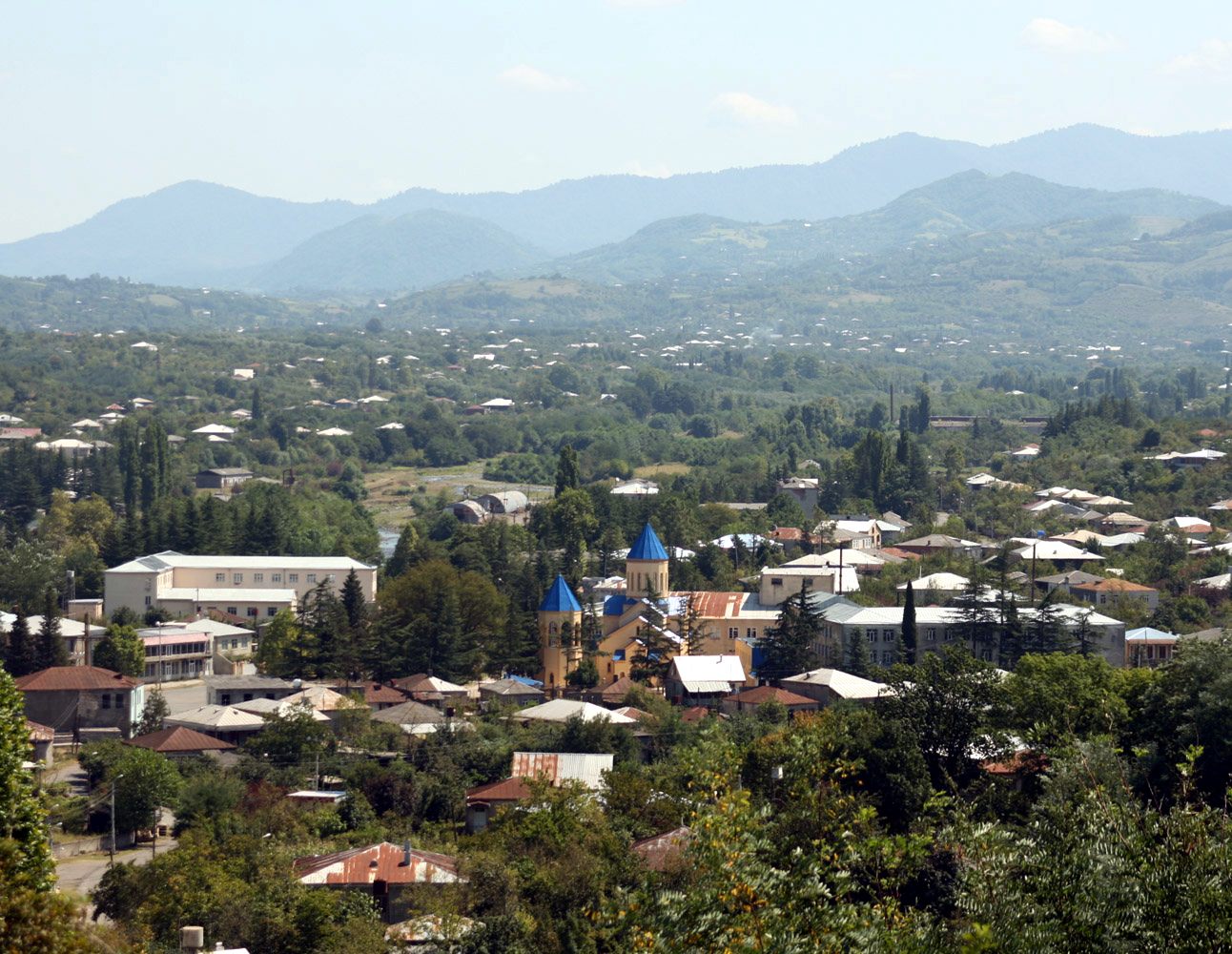The Jewish Graveyard in Kutaisi was opened in 1895, although the oldest tombstones date to the early 20th century. The weather and time have left their mark on the tombstones, the inscriptions on them have disappeared and only a specific trail allows visitors not to set foot on the graves.
Archives: Directory listings
Directory listings
Upper (Mtsvanekvavila) Synagogue
This Synagogue, which is surrounded by a yard, is fairly big. It was built in the middle of the XIX century. The style by which it is created is Neo-Romanesque; its every façade is distinctive by its symmetry. Its main façade is facing the yard and in its center an entrance is cut out. Over the entrance there is a window; there are large windows also in the middle composition on both sides in the arches. The material out of which the building is made is stone and the interior is painted. The community who use the synagogue is Jewish Georgians.
Kutaisi Jewish Quarter
In Kutaisi, where up to 30 thousand Jews lived, the neighborhood between Gaponov street and Mtsvanekvavila is referred to as Jewish quarter. However only 70 Jewish families are left in the city today.
Second Synagogue in Kutaisi
The second synagogue in Kutaisi, located next to the Great Synagogue of Kutaisi, specifically at 8 Boris Gaponov St, was built in 1912 and is surrounded by ancillary buildings. The building is smaller compared to other synagogues and it has two floors, the first out of which is decorated by stone orders, while the second is painted white. It has two entrances, the main and the helping one. Hebrew was taught here and various Jewish rituals were performed. There also was a bakery where “Matsa” was baked. Nowadays it is not active but its condition is fair. The community of the Synagogue used to be Georgian Jews. The synagogue has a status of cultural monument given by “Ministry of Culture and Sports of Georgia”.
The Great Synagogue in Kutaisi
The Synagogue, located in Kutaisi, Boris Gaponov Street, has a capacity of 350 people. The Synagogue was built in 1886 and nowadays it is active and its condition is fair. The building is fairly big, it is made of stone and is divided with three arches, the interior is fully painted and its style is Neo-Romanesque. Out of the three synagogues in the city, this one is the most decorated. The synagogue has a status of cultural monument given by “Ministry of Culture and Sports of Georgia”.
Gourmand Samtredia
Georgian cuisine with delicious dishes
Pomegranate Hotel
Set in Kutaisi, 700 m from Colchis Fountain, Pomegranate Hotel features air-conditioned accommodation and a bar. All rooms boast a flat-screen TV with satellite channels and a private bathroom. The accommodation offers a 24-hour front desk, airport transfers, room service and free WiFi throughout the property. At the hotel the rooms are equipped with bed linen and towels and guests at Pomegranate Hotel can enjoy a continental breakfast.
Bike hire and car hire are available at the accommodation and the area is popular for fishing and canoeing. Bagrati Cathedral is 2 km from Pomegranate Hotel, while White Bridge is 2.4 km from the property. The nearest airport is Kutaisi International Airport, 23 km from the hotel. This is our guests’ favourite part of Kutaisi, according to independent reviews.
Sachkhere Gardens
Relaxing atmosphere, high quality comfort and traditional Georgian hospitality. They offer all the elegance and charm of a private home in the heart of Imereti.
Kulashi Old Assembly Building
The oldest wooden synagogue in Kulashi is about 200 years old; it dates back to the 18th century. It was restored a few years ago. Today any visitor can see its stunning ornaments and paintings. The synagogue has the status of national importance.
Town of Vani
Vani, located at the left bank of river Sulori, is a town in the Imereti region of western Georgia. According to scholars “Vani” in old Georgian meant “Home”. Vani is an ancient inhabited district. The oldest archeological object, which was discovered there, dates back to the 8th-6th BC. Shabtay Tsuri also known as Shota Tsotsiashvili, who was Georgian-Jewish politician and diplomat was born here. Regarding the Jewish sites you can find: a Synagogue, which was built in the 19th century and Jewish graveyard there.
